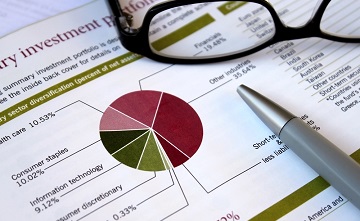The Risks of Home Bias: Why You Need to Look Beyond the ASX
Australian investors have long been known for their strong bias toward local markets. It’s understandable—people invest in what they know and trust. However, relying solely on the Australian Stock Exchange (ASX) comes with a significant issue: a lack of diversification.
Our share market is heavily concentrated in just two sectors:
- Financials (30%)—dominated by banks like NAB, ANZ, Westpac, and Commonwealth Bank.
- Resources (20%)—led by giants like BHP, Rio Tinto, and Fortescue Metals.
This means over 50% of our entire market is tied to just two industries, which exposes portfolios to unnecessary risk.
Why Sector Concentration Is a Problem
- Resources Are Price Takers
- Resource companies rely on global commodity prices, which they can’t control. Their profitability can swing dramatically based on factors like demand, supply, and geopolitical issues.
- For this reason, I choose to avoid investing in commodities altogether for myself and my clients.
- Banks Face Growth Challenges
- While Australian banks are strong, their growth prospects are limited. Lending growth is a concern, as the average Australian household is already stretched. It’s difficult to see how these businesses will continue growing as they have in the past.
Overexposure to these two sectors leaves Australian investors vulnerable to downturns in financials and resources. To build a portfolio that is truly diversified and future-focused, we need to look globally.
Global Diversification: The Solution
Global diversification allows us to spread investments across:
- Different countries—reducing country-specific risks.
- Broader sectors—accessing industries that are underrepresented in Australia.
- Future growth themes—like technology, healthcare, and renewables.

Sectors You Can’t Find in Australia
- Technology
Australia has very little exposure to the booming global technology sector. Companies like Microsoft, Apple, and Amazon are leaders in cloud computing, artificial intelligence, and software development—areas driving the future economy.
- Healthcare
While CSL is a standout in Australia, global healthcare giants like Pfizer and Intuitive Surgical (makers of the Da Vinci surgical robot) are transforming the industry. These companies are at the forefront of innovation, tackling complex healthcare challenges worldwide.
- Semiconductors and Microchips
Semiconductors are the “picks and shovels” of the future, powering cloud computing, AI, and processing needs. Companies like ASML in the Netherlands and Taiwan Semiconductor Manufacturing Company (TSMC) are essential to this sector—yet there’s no equivalent exposure in Australia.
- Consumer Goods
Global brands like Visa, MasterCard, and Nestlé dominate consumer markets worldwide, providing stability and strong long-term growth.
But What About Dividends and Franking Credits?
A common objection I hear—particularly from retired Australian investors—is the need for high dividends and franking credits. It’s true that overseas shares don’t offer franking credits, but here’s the reality:
- The total return (capital growth + dividends) from international markets—particularly the U.S. tech sector—has comfortably made up for any loss of franking credits over the last 10 to 20 years.
- Focusing solely on dividends can mean missing out on businesses with exceptional growth potential.
How to Access Global Markets
In the past, global investing was cumbersome and expensive. It often required using unlisted managed funds, which came with high fees and tax implications. Thankfully, technology has changed that.
Today, we can provide clients with direct access to global businesses like Microsoft, Amazon, and Visa efficiently and cost-effectively. Options include:
- Direct Shares: Buying individual global companies.
- Exchange-Traded Funds (ETFs): Low-cost index options that offer broad global exposure.
- Managed Funds: Professionally managed global investment portfolios.
- Listed Investment Companies (LICs): Australian-listed vehicles holding international businesses.
The Importance of Overcoming Home Bias
It’s natural to feel comfortable investing in Australian businesses—we’re strong in resources and banking. But we also have to recognise our limitations: the lack of diversification and exposure to global sectors shaping the future economy.
By embracing global diversification, investors can reduce risk, access new opportunities, and ensure their portfolios are positioned for growth over the long term.
Final Thoughts Investing globally isn’t about replacing Australian businesses; it’s about complementing them. By spreading investments across countries, sectors, and growth themes, we build portfolios that are better equipped to weather challenges and capture opportunities.
Don’t let home bias hold back your financial future. The world is full of exceptional businesses—ensure your portfolio includes them.
The information provided in this article is general in nature only and does not constitute personal financial advice.






